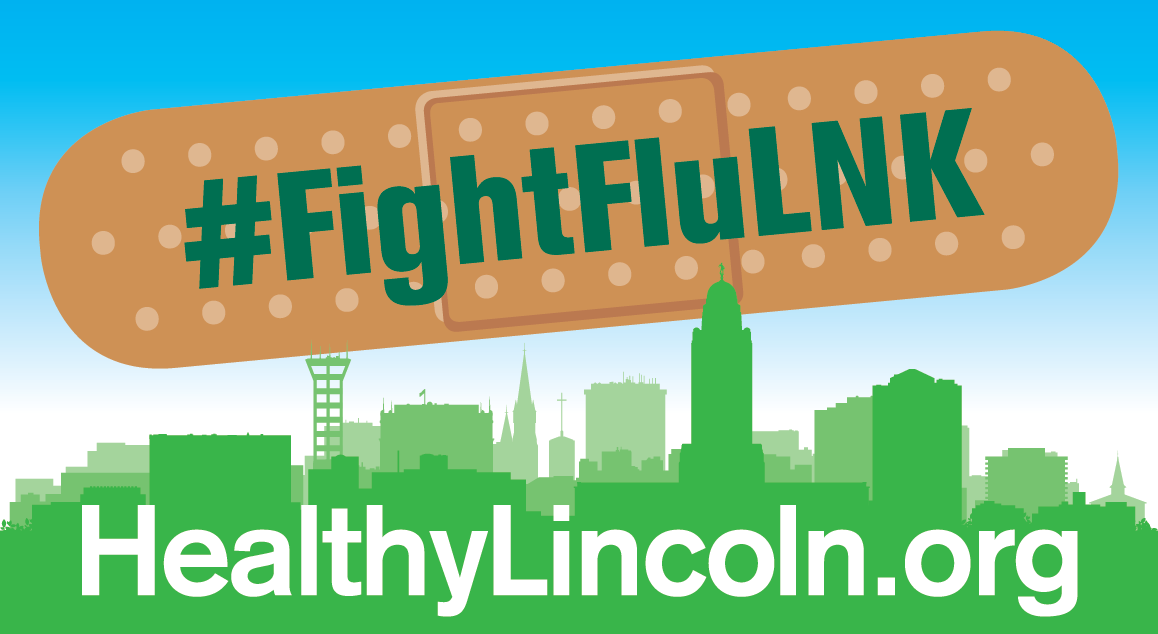
Nobody Needs The Flu This Year
Vaccination provides important protection from influenza illness and its potential complications. If you are at higher risk of developing serious flu complications, flu vaccination is especially important. When you get vaccinated, you reduce your risk of getting sick with flu and possibly being hospitalized or dying from flu.
Flu facts
- Flu symptoms include fever, cough, sore throat, runny or stuffy nose, body aches, headache, chills and fatigue. Some people also may have vomiting and diarrhea. People may be infected with flu and have respiratory symptoms without a fever.
- Influenza (flu) can cause mild to severe illness, and at times can lead to death. Flu is different from a cold. Flu usually comes on suddenly.
- Most flu vaccines protect against the four flu viruses that research suggests will be most common.
- Everyone 6 months of age and older should get annual flu vaccine by the end of October. Children younger than 6 months are at high risk of serious flu illness, but are too young to be vaccinated. People who care for infants should be vaccinated instead.
- Vaccination of high risk persons is especially important to decrease their risk of severe flu illness. People at high risk of serious flu complications include young children, pregnant women, people with certain chronic health conditions like asthma, diabetes or heart and lung disease and people 65 years and older. Many people at higher risk from flu also seem to be at higher risk from COVID-19.
- Vaccination also is important for health care workers, and other people who live with or care for people at higher risk to keep from spreading flu to them. This is especially true for people who work in long-term care facilities, which are home to many of the people most vulnerable to flu and COVID-19.

Take everyday preventive actions to stop the spread of germs.
- Avoid close contact with people who are sick.
- If you are sick, limit contact with others as much as possible to keep from infecting them.
- Cover coughs and sneezes.
- Cover your nose and mouth with a tissue when you cough or sneeze. Throw the tissue in the trash after you use it.
- Wash your hands often with soap and water. If soap and water are not available, use an alcohol-based hand rub.
- Avoid touching your eyes, nose and mouth. Germs spread this way.
- Clean and disinfect surfaces and objects that may be contaminated with viruses that cause flu.
- Stay home for at least 24 hours after their fever is gone except to get medical care or other necessities. Fever should be gone without the need to use a fever-reducing medicine. The stay-at-home guidance for COVID-19 may be different.
- Stay away from others as much as possible to keep from infecting them. If you must leave home, for example to get medical care, wear a facemask if you have one, or cover coughs and sneezes with a tissue. Wash your hands often to keep from spreading flu to others.
If you get sick
Most people with the flu have mild illness and do not need medical care or antiviral drugs. If you get sick with flu symptoms, in most cases, you should stay home and avoid contact with other people except to get medical care. If, however, you have symptoms of flu and are in a high risk group, or are very sick or worried about your illness, contact your health care provider (doctor, physician assistant, etc.).
Certain people are at high risk of serious flu-related complications (including young children, people 65 and older, pregnant women and people with certain medical conditions). This is true both for seasonal flu and novel flu virus infections. If you are in a high risk group and develop flu symptoms, it’s best for you to contact your doctor early in your illness. Remind them about your high risk status for flu. People at high risk for complications should get antiviral treatment as early as possible, because benefit is greatest if treatment is started within 2 days after illness onset.
Medication
- Take flu antiviral drugs if your doctor prescribes them. If you are sick with flu, antiviral drugs can be used to treat your illness. Flu antiviral drugs are not designed to treat COVID-19.
- Antiviral drugs are different from antibiotics. They are prescription medicines (pills, liquid or an inhaled powder) and are not available over-the-counter.
- Antiviral drugs can make flu illness milder and shorten the time you are sick. They may also prevent serious flu complications. For people with high risk factors, treatment with an antiviral drug can mean the difference between having a milder illness versus a very serious illness that could result in a hospital stay.
- Studies show that flu antiviral drugs work best for treatment when they are started within 2 days of getting sick, but starting them later can still be helpful, especially if the sick person has a high risk factor or is very sick from flu.
- If you are at higher risk from flu and get flu symptoms, call your health care provider early so you can be treated with flu antivirals if needed. Follow your doctor’s instructions for taking this drug.
- Children and teenagers (anyone aged 18 years and younger) who have flu or are suspected to have flu should not be given Aspirin (acetylsalicylic acid) or any salicylate containing products (e.g. Pepto Bismol); this can cause a rare, very serious complication called Reye’s syndrome.
When to go to the Emergency Room
The emergency room should be used for people who are very sick. You should not go to the emergency room if you are only mildly ill. If you get sick with flu symptoms and are at high risk of flu complications or you are concerned about your illness, call your health care provider for advice. If you go to the emergency room and you are not sick with the flu, you may catch it from people who do have it.
What are the emergency warning signs of flu?
People experiencing these warning signs should obtain medical care right away.
In children
- Fast breathing or trouble breathing
- Bluish lips or face
- Ribs pulling in with each breath
- Chest pain
- Severe muscle pain (child refuses to walk)
- Dehydration (no urine for 8 hours, dry mouth, no tears when crying)
- Not alert or interacting when awake
- Seizures
- Fever above 104°F
- In children less than 12 weeks, any fever
- Fever or cough that improve but then return or worsen
- Worsening of chronic medical conditions
In adults
- Difficulty breathing or shortness of breath
- Persistent pain or pressure in the chest or abdomen
- Persistent dizziness, confusion, inability to arouse
- Seizures
- Not urinating
- Severe muscle pain
- Severe weakness or unsteadiness
- Fever or cough that improve but then return or worsen
- Worsening of chronic medical conditions
These lists are not all inclusive. Please consult your medical provider for any other symptom that is severe or concerning.







